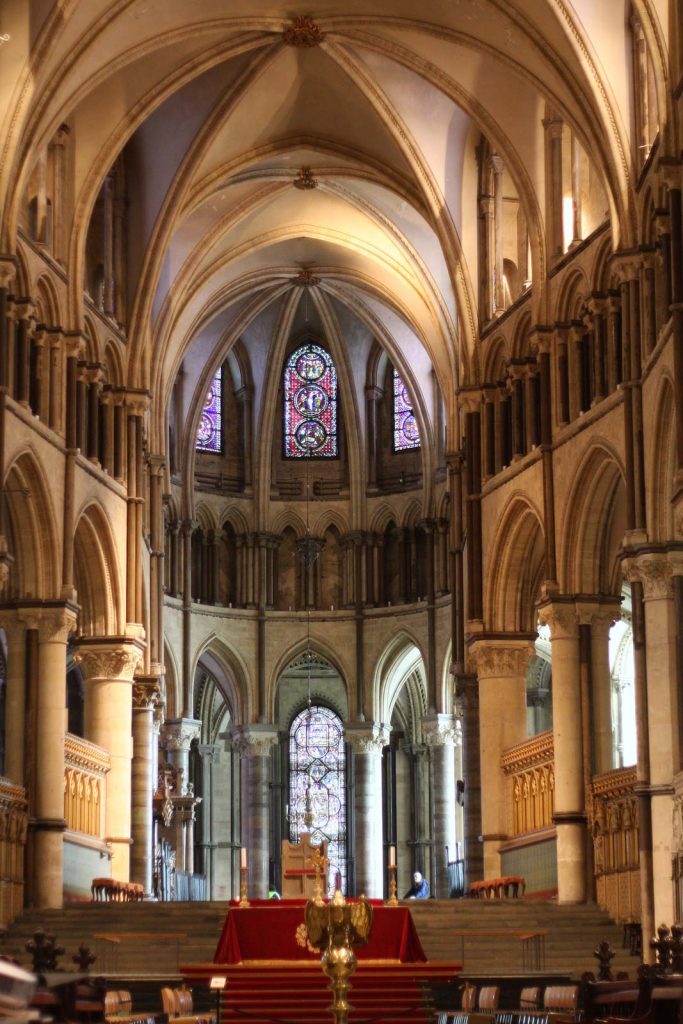Tonight, we continue with our Eastertide study of Fr. Stephen Freeman’s book Everywhere Present: Christianity in a One-Storey Universe. Please read Chapter 3 “We Live in an Altar” and Chapter 4 “The God Who is Not There.” In chapter 4, Fr. Freeman writes of how the modern world has consigned God to the second storey to be called upon when needed, but to generally be ignored in daily life.
In his book, God in the Dock, C.S. Lewis writes that religions, like soups, come in two broad categories – thick and clear. Thick religions are those of “orgies and ecstasies and mysteries and local attachments” such as animistic religions. The gods are immanent and omnipresent. Clear religions are “those which are philosophical, ethical and universalizing: Stoicism, Buddhism, and the Ethical Church.” God is the Monad, the Prime Mover, or that which is beyond being. Traditionally, Christianity has held both the thick and clear together. We worship a clear God who is beyond ineffable through the think ritual of drinking blood and eating flesh.
Beginning in the Reformation and the Enlightenment, thick Christianity has given way and God has been consigned to the clear philosophies of the second storey. God has been reduced to an idea or a theology to be pulled out when needed, but otherwise consigned upstairs as an abstraction to be neither seen nor heard unless invited. God is simply not here in our world anymore.
The problem is that God, like any other idea, cannot be experienced in general but can only be experienced in particular. A person cannot have “friendship” or “marriage” without having an actual friend or spouse. To know and experience the divine essence is to know and experience its particularity. On many levels, Christianity shares a common understanding of the Divine with most philosophical systems from Greek Neoplatonism to Buddhism. The difference is that Christianity asserts that this ineffable divine essence becomes particularly incarnate in the person of Jesus Christ and to retain this thick incarnate religion within our lives and religious rites.
For Fr. Freeman (Baptist turned Episcopalian turned Russian Orthodox) the solution is the recovery of the particularity and the immediacy of God in our storey. It’s the recovery of a thick Christianity of holy days, feasts and fasts, and religious imagery. But, primarily, the solution is the recovery of the ancient Christian understanding that our sacraments are not mere signs that point towards a greater reality in the second storey but are themselves the manifestation of that Reality and are the means of our participation in that Reality within our one-storey universe. (A great very brief discussion on this is pp.138-139 of Schumann’s For the Life of the World.)
So Jesus said to them, “Truly, truly, I say to you, unless you eat the flesh of the Son of Man and drink his blood, you have no life in you; he who eats my flesh and drinks my blood has eternal life, and I will raise him up at the last day. For my flesh is food indeed, and my blood is drink indeed.
John 6:53-55

